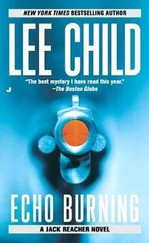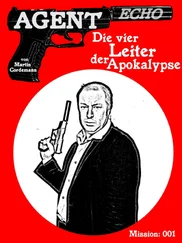‘Yes.’
‘Then put my number in it. I will have to lock the door behind you. It’s nothing personal, but we have to do it as a security measure. It’s one of our rules.’
‘Fine,’ Suzanne said.
He shuffled past her and began to lead the way. ‘I hope you don’t have any allergies.’
‘What?’
‘Specifically, I hope you’re not allergic to dust.’
Suzanne expected mildew. She expected splotched pages and books with gummy spines. But there was a dehumidifier purring away in the corner when the museum worker switched on the overhead lights in the subterranean room. Everything looked dry and comparatively clean and well ordered. The shelves were neatly stacked. The lights cast a brilliant flare of white brightness. They revealed her guide’s glasses as bifocals and gave his eyes an avaricious gleam. She realised that the remark about dust had been his little joke.
‘Good luck.’
‘Thank you.’
‘We close at five. Appreciate it if you could summon me to come and get you by a quarter to, at the latest.’
Suzanne looked at her watch. It was just approaching one. She had not eaten breakfast, but this was one day when lunch could wait. The walk along Roe Lane to Churchtown had been just the thing, she realised now, for her hangover. All trace of it was gone. She felt alert and fresh. And she was excited at the nature of the archive that clearly resided here, well maintained but scarcely ever used. There might be secrets here, committed to paper by Jane Boyte before her rebel instinct was destroyed. As she heard the key turning to lock the basement door, Suzanne had Jane pictured in her mind on the sand in the sunshine, wearing her flying leathers, feline and gorgeous with her bobbed hair raven black and her smile full of life and mischief between the brothers Giroud.
She found what she was looking for within fifteen minutes. The Dáil delegation press picture had led her to expect something typed rather than handwritten. And it was typed, double-spaced across eighty pages which had then been professionally bound. The binding was blue canvas-backed board and it had faded with the years from what Suzanne had imagined was cobalt to something much paler. There was nothing on the cover to tell you what you were reading. But on the volume’s slim spine were printed the words: Jane Elizabeth Boyte. My Deposition. August 12, 1927 .
There was a desk in the corner of the museum basement. Suzanne went over to it and pulled up its chair and sat. She had no protective gloves with her to shield the pages of the deposition from damaging secretions. But she had the strong instinct that she was the first person in eighty years to open what she held between her hands. And she thought that it would survive the experience. She opened the volume and flicked through the leaves with her thumb. They were thicker than flimsy, thicker than foolscap. They were somewhere between foolscap and cartridge paper and would have been stiff in the roller of Jane’s Royal or Remington machine. The letters forming the words were even in their depth of ink and the impression left by the individual keys on the page. Jane Boyte had been an expert typist, fast and confident and clean. There were no mistakes at all. Her deposition was, Suzanne could see from the dates at the top of each entry, strictly speaking, a diary. At least, it was a chronological account. It ran from May 10 to August 8. And it concerned itself only with the days and weeks and months in between those two dates during the single year of 1927.
Jane’s entire deposition had been written during Harry Spalding’s Southport summer.
There was an introduction. Jane had signed it with a fountain pen, writing her full name. There was a curious, sombre formality about the whole vintage exercise. There were secrets here, Suzanne was sure. She lifted the document and held it to her nose. It smelled very faintly of ancient tobacco and expensive scent. Suzanne was pretty sure the perfume Jane had worn at that time was Shalimar. She had been a proto-feminist, a privileged revolutionary who flew an aeroplane and smoked cigarettes in public. She had been bright. She had been a celebrated beauty. When she was nineteen or twenty, she might have shared Michael Collins’ bed.
Suzanne read the introduction.
Every word of what is written here was written in sincerity. You, reader, can draw your own conclusions as to its veracity. But there was no revision, no tinkering or retrospective editing of the account. I have described events as they occurred. My conclusions have been based on compelling evidence. That evidence is circumstantial, but when you have read what is contained here, you might agree that this unfortunate fact was not for the want of me trying to effect its reversal. And I really did try. But wealth is a more compelling imperative than truth, even in our modern times. And the weight of a woman’s opinion and justified suspicions are still not accorded that of a man’s. I am given to wonder if they ever will be.
When you have read this, you might justifiably wonder about the writer. What can I honestly tell you? I am impressionable and impulsive. My morals might not sit very easily with you. I am comfortably off. I possess independence of spirit and was, until recently, generally a stranger to fear. I have known real and thrilling greatness in a human being. And I knew that human intimately and the knowledge did not impair or diminish in any way the impression of that greatness.
But, reader, I have also known the Devil himself. And it is with this encounter that the following account is concerned.
Suzanne rang the number given her by the skiving museum staff member. She did not want to read Jane’s deposition in that barren, white-lit, book-infested room. She had followed her intuition to Southport in the absence of hard information about Harry Spalding and his blighted boat. She felt vindicated now. But she wanted to read what she had discovered in the space and at the time of her choosing. There was urgency here. But she felt she would glean more from the deposition away from where she had discovered it. She would take it, if she was permitted to, and read it at one of the tables outside the Fisherman’s Rest. There was no doubt in her mind about the identity of the devil to whom Jane referred. The Fisherman’s Rest had been an adjunct to the long-demolished Palace Hotel. And it was only a few hundred yards from the mansion hidden on Rotten Row where Jane’s devil had lived. She would read her deposition there, as afternoon turned to evening, as close to the memory and spoor of Harry Spalding as she was able to get.
‘Hello?’
‘I’ve found what I came here for.’
His radio was on again. Coldplay were feeble, almost anorexic in the background. He was hiding in his cupboard. ‘Congratulations.’
‘Could I take it away with me?’
There was a pause. ‘Absolutely not.’
‘Why?’
‘Intrinsic value.’ The Southport accent had a flat quality. It wasn’t nasal, like Mancunian. And it was slower and more deliberate than Liverpudlian. Words delivered in it had a finality about them. But Suzanne was not intimidated. ‘This isn’t Magna Carta we’re talking about here.’
‘Then photocopy it.’
‘Not the same. Twenty-four hours?’
But the museum skiver was entrenched. ‘No.’
‘I’ll leave you a deposit. Fifty quid. Non-returnable. Twenty-four hours.’
There was a pause. ‘More than my job’s worth.’
Suzanne thought the pause significant. ‘A hundred?’
‘Done.’
She left the Botanic Gardens museum with Jane Boyte’s deposition in her bag. On her way back to Roe Lane through Churchtown she stopped at a picturesque pub with tables outside called the Hesketh Arms. She did not read. She ate. It was after two thirty now and she was very hungry. The sun was warm on the weathered surface of the table she sat at. Ivy grew green and verdant on the white walls of the pub. Flowers in window boxes filled with freshly watered soil smelled sweet and fragrant. She ordered a cheese salad and it was very good: fresh, crusty bread and crumbly Lancashire cheese and plump tomatoes freshly picked from the greenhouses outside the town at one of the farms on the South Lancashire plain. The scene would have been idyllic, were it not for the lorries trundling by, their emissions rippling in the summer light, distorting the view.
Читать дальше












